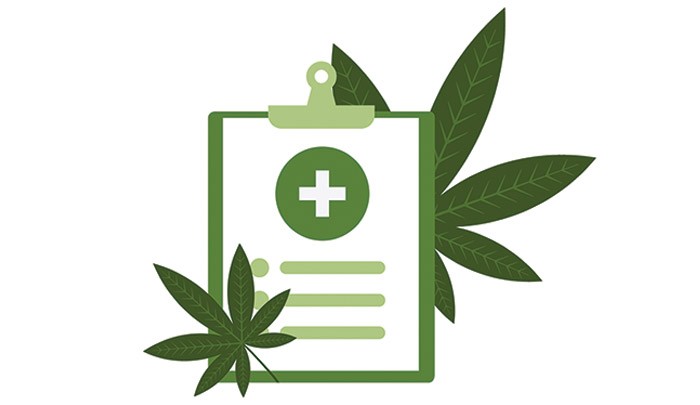Shedding Light on What Medical Cannabis Can Treat: an Extensive Analysis of Its Healing Properties
In recent years, there has actually been a growing passion in the therapeutic capacity of clinical marijuana. While unscientific proof abounds, a comprehensive examination of the clinical information concerning the effectiveness of clinical cannabis in treating these conditions is called for.
Persistent Discomfort Administration
Persistent pain management continues to be a vital facet of treatment, necessitating an extensive strategy for effective therapy. In recent times, clinical cannabis has arised as a potential healing alternative for individuals experiencing chronic pain problems. The endocannabinoid system, which plays an essential duty suffering inflection, has actually been targeted by cannabis-based therapies to ease signs and improve lifestyle for clients.

Moreover, clinical marijuana uses an appealing option for clients who experience unbearable side effects from standard discomfort medicines. Its ability to resolve discomfort with a different mechanism makes it a valuable enhancement to the arsenal of treatments offered for persistent pain monitoring.
Epilepsy Treatment Possible
Clinical marijuana has actually revealed promising possibility in the therapy of epilepsy, providing an unique therapeutic technique for taking care of seizures in people. Epilepsy is a neurological disorder identified by frequent seizures, influencing individuals of all ages. Typical therapies for epilepsy include antiepileptic drugs, but these medications might not be reliable for all patients and can have substantial negative effects.
Study on using clinical marijuana for epilepsy has actually exposed encouraging outcomes. Cannabidiol (CBD), a non-psychoactive substance discovered in marijuana, has actually been particularly highlighted for its anticonvulsant buildings. Research studies have actually shown that CBD can lower the frequency and intensity of seizures in clients with treatment-resistant forms of epilepsy, such as Dravet syndrome and Lennox-Gastaut disorder.
Moreover, the FDA has actually authorized a CBD-based medication, Epidiolex, for the therapy of seizures related to these extreme forms of epilepsy. This landmark highlights the growing recognition of clinical marijuana as an important healing option for taking care of epilepsy and gives hope for people that have actually not responded well to conventional therapies.
Nausea Alleviation Perks
The alleviation of nausea or vomiting with the use of cannabis has actually been significantly acknowledged for its healing advantages in various medical problems. Nausea or vomiting and vomiting are usual symptoms experienced by patients undertaking radiation treatment, those with food poisonings, and people with chronic discomfort conditions. Clinical marijuana, with its energetic substances such as THC and CBD, has shown promise in giving alleviation from nausea.

Additionally, medical marijuana offers a natural choice for people who do not respond well to conventional anti-nausea drugs or who experience extreme side impacts from these drugs. Individuals undergoing chemotherapy, particularly, have reported my explanation considerable renovations in their lifestyle when using marijuana to manage nausea or vomiting. As research in this area proceeds to expand, clinical marijuana is progressively being considered as an important option for queasiness relief in various medical settings.
Anxiousness Decrease Effects
Research studies have demonstrated the capacity of cannabis in reducing anxiety symptoms via its communication with the endocannabinoid system. The endocannabinoid system plays an important function in regulating emotions, consisting of anxiety, by preserving homeostasis in the body. Cannabinoids in marijuana, such as THC and CBD, engage with the endocannabinoid receptors in the brain, particularly the CB1 and CB2 receptors, to regulate anxiety-related actions.

People with problems like generalized anxiousness disorder (GAD), social anxiety condition, and post-traumatic stress problem (PTSD) may take advantage of the anxiolytic properties of marijuana (Medical Cannabis Clinic). However, more research is required to figure out optimum dosages, distribution approaches, and lasting results on stress and anxiety administration.
Potential for Swelling Control
With its recognized anti-inflammatory residential properties, cannabis has actually shown assurance in potentially regulating swelling within the body. Inflammation is the body's natural feedback to injury or infection, however when it becomes persistent, it can add to different diseases such as joint inflammation, inflammatory digestive tract illness, and even heart problem. Research study recommends that the cannabinoids located in cannabis, such as THC and CBD, can help reduce and regulate the immune feedback inflammation.
Researches have revealed that marijuana can interact with the endocannabinoid see it here system, which plays a critical role in managing swelling. By targeting the cannabinoid receptors, marijuana compounds can modulate the immune response, leading to a decline in swelling levels. This makes marijuana a prospective candidate for handling inflammatory conditions where traditional therapies have failed.
In addition, cannabis-derived products like CBD oil have acquired popularity for their anti-inflammatory properties, with several individuals using them as an all-natural treatment for problems related to inflammation. While more study is needed to totally comprehend the mechanisms behind cannabis's anti-inflammatory impacts, present findings reveal encouraging results for the potential use of clinical cannabis in regulating inflammation.
Final Thought
In conclusion, medical cannabis has actually shown encouraging healing properties in managing chronic pain, treating epilepsy, easing nausea, decreasing stress and anxiety, and regulating inflammation. Its prospective benefits in different medical conditions highlight the importance of more study and expedition into its medical use. The proof suggests that clinical marijuana can be a useful alternative therapy alternative for clients seeking remedy for a variety of conditions and signs and symptoms.
In recent years, medical marijuana has arised as a prospective therapeutic choice for individuals suffering from persistent discomfort problems.Medical marijuana has shown promising capacity in the treatment of epilepsy, offering a novel restorative approach for taking care of seizures in clients. As study in this location continues to expand, clinical marijuana is increasingly being taken into consideration as an important choice for queasiness relief in numerous medical settings.
In conclusion, clinical cannabis has actually shown promising healing homes in taking care of persistent discomfort, treating epilepsy, soothing nausea, minimizing stress and anxiety, and controlling swelling. The proof recommends that medical marijuana can be a valuable alternative therapy choice for people looking for alleviation from an array of problems and signs.